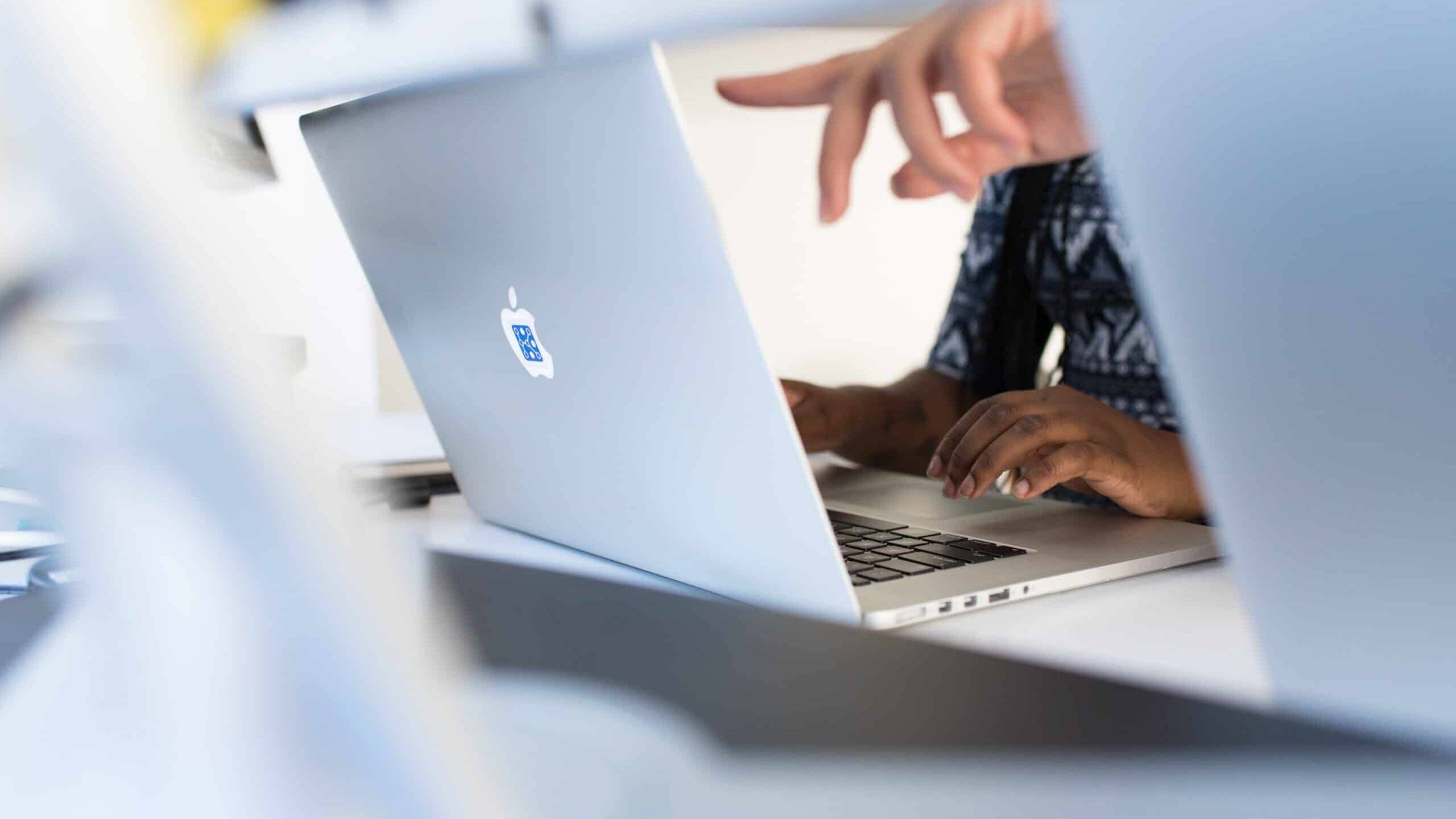Angélique Gerard, one of France’s top business angels, says that the reluctance of women to invest more in startups is a result of gender-biased education and culture. Overcoming these stereotypes would finally allow everyone to think more about the merits of a startup and less about the gender of its founders, she says in our interview.

Angel Investor
Angélique Gerard has more than 20 years of experience in telecommunications. She was a member of the executive committee of Illiad, the French fixed and mobile telephone operator. In 2022, she quit her operational role and continues to advise Iliad in strategic matters. In 2021, Angélique launched Sistemic, an initiative to encourage more female talents to choose STEM (Science, Technology, Engineering, and Mathematics) studies together with Aude de Thuin and Léna Touchard. Angélique was named one of the top 10 female business angels in France by Forbes.
When did you start investing in startups and why?
I started investing more than 15 years ago. I was motivated by a need for intellectual stimulation and a strong desire to give back some of what I learned and earned. I have also always loved being a mentor and the sharing and reciprocal enrichment that comes with it. For me, it is a real responsibility. I never just invest, I also devote myself to the project by supporting the ambitions of entrepreneurs as best I can!
As an entrepreneur, I’m happy to share my knowledge of strategy and all aspects of business, at all startup stages. I advise founders on quality service, customer experience, growth, strategy, and management and leadership. I can also activate my professional network when I see potential synergies. It is very pleasant to feel useful in the development and acceleration of a project which I believe in. I am also always available when called upon to share my expertise in areas of personal development such as self-confidence, negotiation, and audacity which are not usually taught to women.
Participating in the development of the French tech ecosystem is energizing. What I find particularly moving is to know that people come to me specifically to benefit from my experience as a businesswoman.
You have invested in more than 20 startups. What are the things you find most important when deciding whether or not to invest?
I’m extremely playful by nature and have a strong appetite for risk and adrenaline. Since I’m a serial entrepreneur, an independent board member with mandates in various sectors, and a member of the management board of Association Familiale Mulliez [the holding company of one of France’s richest families that controls companies such as Auchan, Decathlon, Orsay and Leroy Merlin]. I have a fairly quick understanding of the challenges of a project, the direction it can take, or even the balance within the founding team.
When the concept is promising, when I can easily envision the future of a startup, when I feel inspired from the first moment of the pitch, then it is because the startup has piqued my interest and instinct.
Then, for an investment to happen, several criteria must be met: it has to be a very good idea, developed by the right team that has the necessary entrepreneurial skills and a real desire to execute and improve our society, as well as a very strong dose of resilience and willpower.
My investment thesis today focuses solely on agritech, in order to meet the major humanitarian and environmental challenges of tomorrow. The agri-food industry seems to me to be the sector that needs innovative solutions most to meet growing needs in terms of quality and quantity. I will publish a book on this topic soon [publisher: Editions Kawa]. I am very attached to the topic of environmental transition. When investing, I ask myself what a project contributes to improving our lives!
“We need to change the predominant culture in entrepreneurship and start-up ecosystems which is a sexist and macho culture that excludes projects led by women.”
What can be done to motivate more women to invest in startups?
Mentalities are changing. We need to show women role models in investment. We need to continue promoting diversity in companies’ decision-making bodies. And we need to change the predominant culture in entrepreneurship and start-up ecosystems which is a sexist and macho culture that excludes projects led by women. Stereotypes are created from childhood on. I am convinced that a less gender-based education for our children would contribute to changing this behavior. It would finally make it possible to give more importance to the projects instead of the gender of their founders.

Invest in Startups
As one of Europe’s most active venture capital investors, we grant qualified private investors access to top-tier European startups. With investments starting at EUR/CHF 10’000, you can build your own tailored portfolio over time and diversify across stages and sectors.
What would you say to another woman who says startups are too risky to invest in?
I would tell her that she is right. The time it takes for financial returns to manifest themselves is a real obstacle to investing in start-ups and young companies are not always successful. But if we don’t start investing, someone else will. I would invite that woman, without giving orders, to deconstruct certain patterns that stem, as I mentioned, from our education and our culture. We need to understand why women remain more hesitant to invest, or to talk about money in general, or to break taboos or to negotiate. We women haven’t learned to take risks, and to be competitive, but we can adapt. Women should learn about investing topics, understand how to minimize the risks, and invest in fields that they understand. When you master a subject, you are better placed to navigate the hazards of this exciting investment field.
What are the strengths and weaknesses of the French startup ecosystem?
The strengths are well known: There are favorable policies and a common desire to build a strong start-up nation, a well-thought-out and consistent system that has proven itself as a project accelerator, and a media interest in the topic. And there is a culture that encourages the consumption of these stories. The Parisian centralism, which was a strong driver of improvement in the beginning, has by now given way to an increasingly dense network of institutions supporting startups in the provinces.
The challenge of the ecosystem, in my opinion, is supporting the digital economy and its applications with a powerful internal market in order to be able to enjoy true economic sovereignty. I would also say that a significant effort remains to be made on inclusion – communicating and breaking the codes of the sexist culture that persists in the digital world.
Startups in France have a lot of government support. Do you think this is necessary?
Investment by the state is essential because it assists the local ecosystems that support startups in France as well as their international development. The image of the startup sector depends on it and I think these investments are well managed. All of this is critical for promoting the excellence of French innovation in Europe and internationally.
Written by
WITH US, YOU CANCO-INVEST IN DEEP TECH STARTUPS

Verve's investor network
With annual investments of EUR 60-70 mio, we belong to the top 10% most active startup investors in Europe. We therefore get you into competitive financing rounds alongside other world-class venture capital funds.
We empower you to build your individual portfolio.
More News
12.08.2022
“Europe needs more real business angels”
Verve Ventures recently announced a partnership with DEPO Ventures based in Prague. DEPO’s co-founder Petr Sima explains in this interview why he is excited about the potential of startups in Easter Europe and why Europe needs more cross-border investments in startups.
01.04.2022
“I’m convinced that entrepreneurship is important“
E-commerce pioneer Thomas Gottheil recently sold his startup Frontastic to the unicorn commercetools. Such an exit is a big event for every entrepreneur, a crowning achievement of a career, but not completely life-changing.
17.03.2022
“Women need to be empowered to try startup investing”
As General Counsel, Odile Gastaldo was part of the core team that built up French telecom provider Neuf Cegetel from scratch to one of Europe’s biggest IPOs in 2006. She loves investing in startups and says women can overcome their self-doubt when it comes to investing.
Startups,Innovation andVenture Capital
Sign up to receive our weekly newsletter and learn about investing in technologies that are changing the world.




